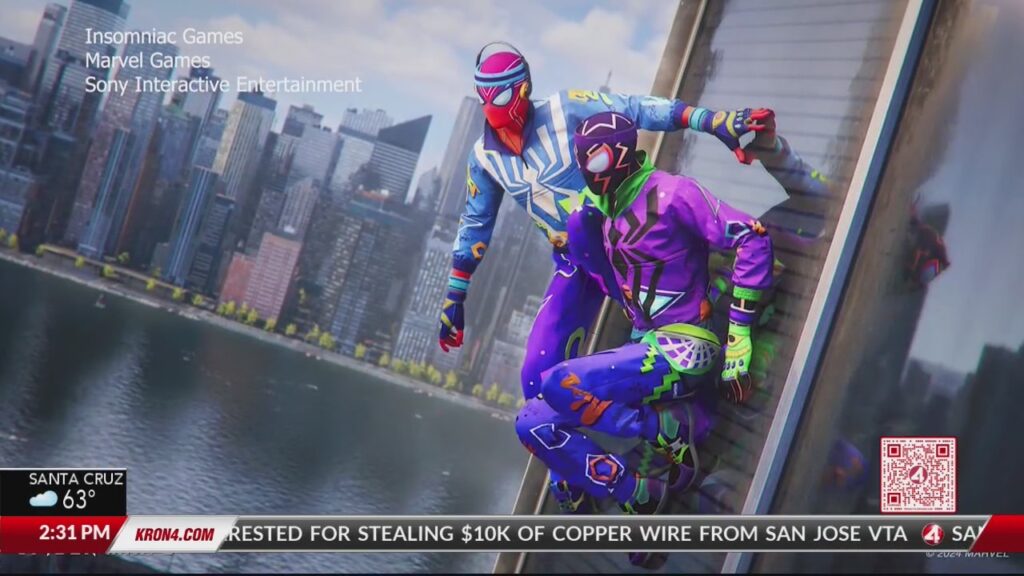OAKLAND, Calif. (KRON) — Oakland kids got paid to design suits for Marvel's new video game for the PlayStation. They were given the opportunity to work on “Spider-Man 2” through a nonprofit organization that helps underserved and underrepresented communities enter the tech field through gaming.
“First game? There's probably something on the Atari 2600,” said Gameheads creator and executive director Samon Packwood. “I think the first game I played that I can remember was probably Kombat, which I played at a friend's house. I remember it being the greatest thing I'd ever seen.”
Packwood grew up in San Francisco and recognized the need to include communities of color in the gaming industry in the early 2000s. So ten years ago he founded Gameheads.
Each year, this nonprofit teaches hundreds of children and youth from underserved communities, from here to as far as Hawaii, the skills like coding and design they need to break into business. .
“We're doing it in a really fun way,” Packwood said. “You say to your students, 'Okay, I'm going to teach you the Learning Pyramid.' They're not going to be excited. But you're going to teach them how to make video games, or you're going to teach them interactive movies or movies with visual effects. They'll get so excited that they'll sneak into the lesson.”
This year, Packwood is celebrating yet another major success.
Six of his students have teamed up with Insomniac and PlayStation to create stickers and a new suit pack called “Fly n' Fresh” for two characters in the new “Spider-Man 2” game, Peter Parker and Miles Morales. I devised this.
The design was by Marisa Diaz, and the suit was inspired by 90's fashion. He's on sale in-game for $4.99 until April 5th, and 100% of the purchase price of these suits (up to $1 million) will be donated to Gameheads.

“We have to work! We worked with their team for about 6-8 months to come up with the concept. We finally settled on the idea and it was a great idea. '' Packwood said. “It was created by an Afro-Latino student from Oakland who was influenced by his father.”
Packwood said more than 35 percent of the current class currently works in the industry, and many more are pursuing careers in the gaming industry.
They select students identified as most in need of support and provide comprehensive services such as hardware and mental health support as part of the program.
There are a few spaces available, so we are accepting applications.


